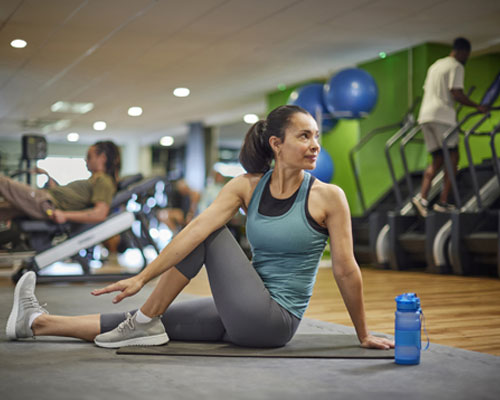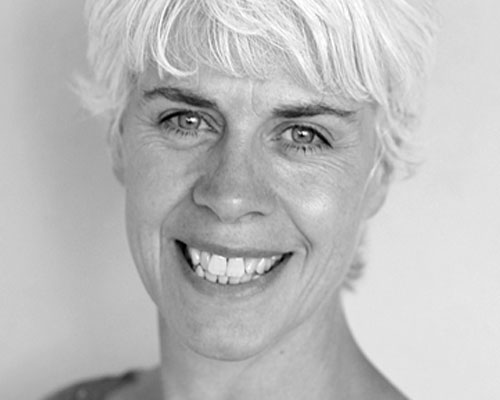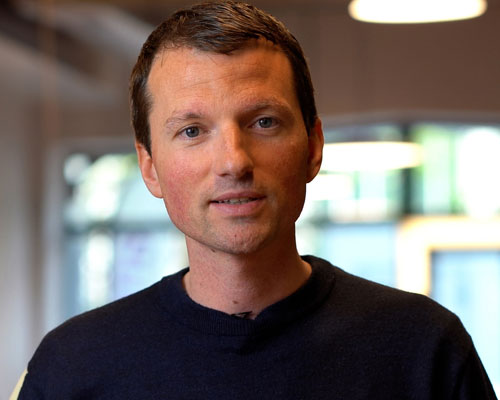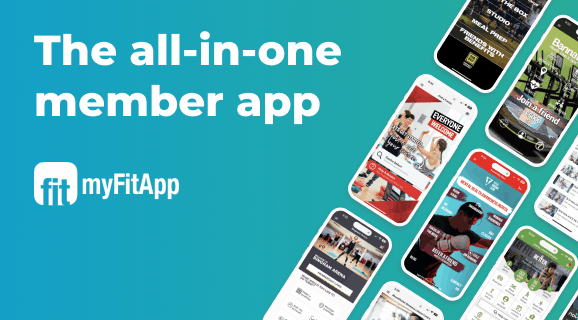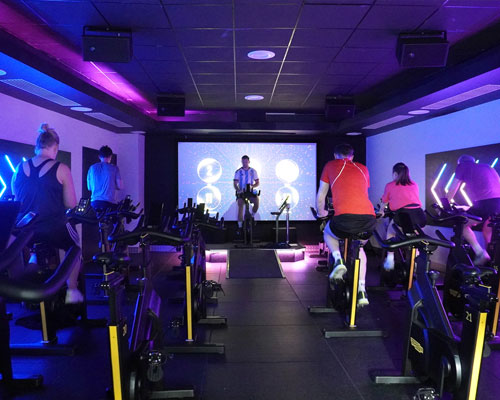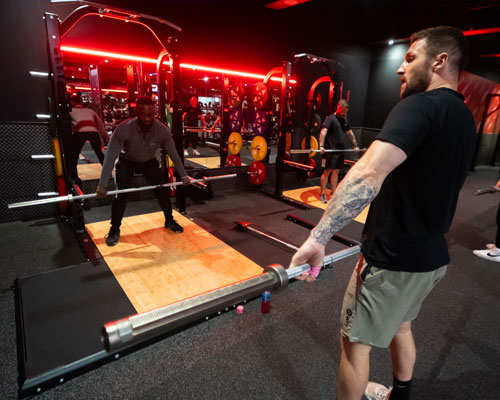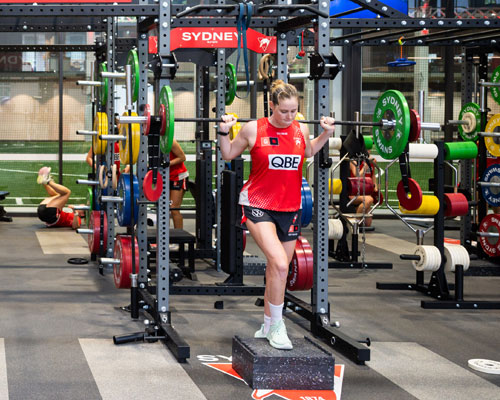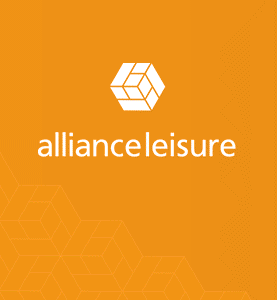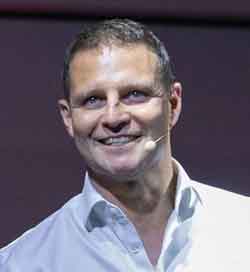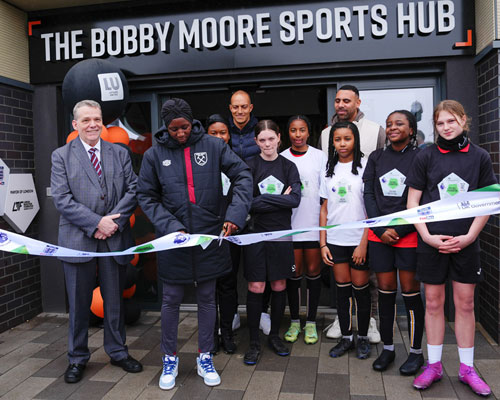features
What's ahead
As the fitness industry has bounced back from the pandemic, experts from around the world reflect on the past year and what might happen next…



Although operators have passed some of the inflation-driven price increases onto customers in the recent past, paying more for memberships does not appear to have dampened demand from consumers.
Europe’s largest fitness chain, Basic-Fit, recorded a 13 per cent year on year membership growth, reaching 3.8 million members at the end of December 2023. Similarly, UK-based fitness operator The Gym Group reported a membership increase of 4 per cent for 2023 compared to 2022, while SATS, one of the largest fitness chains in the Nordics, saw members increase in 2023.
Despite a good recovery from the pandemic, the expansion plans of European operators have been challenged by inflationary rises in operating and financing costs. Long-term cost control and respective strategic measures are required to ensure sustainable growth and profitability.
As the current economic environment encourages fitness operators to evaluate and improve cost efficiency, smart cost concepts demonstrate potential areas for cost savings. Finnish operator Liikku Kuntokeskus has set an example with its highly efficient club management, a small headquarters team, smart processes and automation for the operation of its 49 clubs. Further expansion of 20 clubs per year in the Finnish market until 2025 has already been announced, which underlines the expected broader market acceptance.
Smart cost concepts have already taken root in several other European markets. Fitness Up in Portugal is cutting costs across its chain of 43 sites by using second-hand gear or equipment of local suppliers and FitActive, which runs around 120 clubs in Italy, as well as FITOMAT in Germany all operate partially without staff.
Looking ahead, large European fitness operators could be affected by new European Union regulatory requirements. The Corporate Sustainability Reporting Directive (CSRD), which aims to modernise and improve sustainability reporting across the EU, came into force at the beginning of 2023. Fitness operators that exceed certain criteria, for example the number of staff and sales, will need to comply with the new reporting requirements. More details are available in the EuropeActive/Deloitte report see page 84.



With people prioritising their health and wellbeing like never before the global fitness industry is booming, so we feel optimistic about the year ahead. Customers are clearly more cost-conscious, but this plays to PureGym’s strengths and proposition. The value sector has historically proved resilient during times of economic downturn.
Inflation and the increase to National Minimum Wage will continue to put pressure on operators’ cost bases. The challenge will be to mitigate these headwinds while finding new ways to continue to unlock value for members. So far we have kept like-for-like costs well under control and, with fixed utility contracts, have done our best to mitigate rising costs. We remain laser focused on this area.
While the macroeconomic environment is likely to remain challenging, PureGym is in a good position to achieve our growth ambitions. There remains significant opportunity to open new sites in our core markets of the UK and Switzerland, where we are targeting an additional 200 gyms in the next three to four years.
The investment and optimisation of our Danish estate remains ongoing and we are continuing to seek growth through franchising in other areas of the world, with plans progressing in the Middle East – where we have 20 gyms – and North Africa. We are also in active conversations in numerous other territories, including Japan and India. In the US we have recently partnered with RCS Real Estate Advisors for site finding and franchise rollout, trading as Pure Fitness.


Last year, holistic health came through as a trend, which we are continuing to see more of in 2024. People are considering their overall health and are looking to incorporate fitness and wellness into their lifestyle, rather than working out for one hour a day.
Although people are keen to be a part of community again, digital fitness will remain important and Xponential Fitness is looking at ways to use technology to innovate and keep delivering exceptional workout experiences, regardless of where that might be. The challenge going forward is striking the right balance, and allocating the right resources, between the in person and digital experience.
A move towards personalised fitness is set to be a hot trend, informed by biometric data and possibly driven by AI, which will allow a customisable experience tailored to individual needs, while being affordable.
Experience-driven fitness is another trend, crossing over with entertainment. People are looking for more than being able to replicate running in the park or doing push-ups on a bench. They’re looking at how they can get community, entertainment and fitness in one place, because everyone is strapped for time.
I’m feeling optimistic. There are so many untapped opportunities and great things our industry can bring to the end consumer. It’s exciting to see where technology can take us, especially with customising fitness and making sure it’s a top-notch experience.
Over the next 12 months, our focus will be on supporting our franchisees to perform strongly. Our new weight management and wellness brand, Lindora, is an exciting addition, as well as the dance-fitness brand, Kinrgy – an online concept we’ve taken into bricks and mortar. Usually we go the other way round, so we’ll use this experience to prove out a new model.


In terms of optimism I’m a 10 out of 10! The big tailwinds continue to blow very strongly for us: people prioritising experiences, fitness being a social as well as a health pursuit, fitness being a sport in itself, younger people exercising more, older people exercising more, broadening our appeal and reach… you get the drift.
Despite the foreboding tales of consumer spending meltdown last year, life goes on for most and people are prioritising spending on gyms, so the demand side of our industry is in great shape. Imagine what might happen when real incomes start to grow again!
There have been some adjustments around where people spend their time, but people are working from home much less than was predicted. As every month goes by we see new Monday looking more like old Monday and Friday was always a quieter day in the City.
From a training trend perspective, the big news is strength and conditioning and mind and body, with all things recovery and relaxation thrown in. I like the fact that mental health is now the number one driver for visiting a club, bumping losing weight off the top slot. It seems like a more honest and sustainable reason: you will nearly always feel happier after a workout, while achieving sustained weight loss is much harder.
Access to capital is still quite hard for our sector and where businesses have emerged with their own form of long COVID – with more debt than they would like and a backlog of investment needs – consumers will be unforgiving and take their business elsewhere.
The 2023 LeisureDB report highlighted there has actually been a 4 per cent reduction in the number of clubs between 2019 and 2023. I think this might have another year to run, as operators sort out their portfolios and shed marginal sites. At the same time the report highlights the growth in members and yield, which is reflective of the strength in demand despite net club closures. I see the growth in pricing continuing, with operators having gained confidence in putting price increases on to members.
The boom in franchising concerns me slightly. Although I’m sure there will be some great stories, I wonder how often the unit economics match the dream sold. Some people will find it tough going, with more expensive capital making it doubly hard. There has been some press around this with regards to the biggest franchise platforms and I expect it will take some years for this to play out. The single category concept can work if they are very local and very low cost, but I’ve only seen one or two notable exceptions to that.
As Third Space rolls out new clubs we will be rolling out new class programmes and expanding wellness and medical services. The demand from Londoners for our offering has never been higher and I only see that going in one direction.
We are seeing great real estate opportunities as landlords repurpose office and retail space and differentiate their development. This is great news for taking Third Space to new parts of London. It’s a busy time, but when the opportunity is there you have to go for it.




We feel optimistic. Last year proved that despite the digital offers, people still like to go to the gym. People want to support their health and the community aspect of training is appealing, especially in a highly individualised society like Germany.
For both men and women, the fitness trend is moving back towards heavy strength training, increasingly involving free weights, such as dumbbells and barbells. Strength training is also becoming more of a focus in group fitness, for example boot camp classes or circuit training. Functional training - holistic full-body training using bodyweight - also remains in vogue.
Reformer Pilates is on the rise and we are starting to offer this at John Reed Fitness. Pilates training on the machine is particularly intensive and efficient, as it trains and stabilises the entire body in a way that is gentle on the joints.
There is still a lot of potential in Germany to convince more people to join gyms. At 13 per cent, our penetration rate is still nowhere near as high as other countries, such as Scandinavia, where it is more than 20 per cent. A combination of aggregators, target groups becoming broader and special interests increasing significantly, creates further opportunities for boutique studios.
RSG Group is currently rolling out the refreshed look of our cult brand, McFIT, the rebrand is aimed at our various target groups, especially Gen Z.



We entered 2024 feeling optimistic for both the industry and The Gym Group. The fundamentals of the UK gym industry, and particularly the low-cost sector, remain strong, with an ever-greater desire from consumers to prioritise their health and wellbeing. With mounting pressure on the NHS, the health and fitness sector continues to have an important role to play in enabling people to build healthy habits and feel good.
People continue to seek more value in their spending and our low-cost, high quality and flexible memberships offer an ideal solution. Our average membership numbers in 2023 were up by 8 per cent on the prior year. We have now made our offering even more accessible with the introduction of an off-peak membership, starting from £13.99 a month.
The Gym Group has launched our Next Chapter growth strategy, which will see us focus on strengthening the core of our business by continuing to break down barriers to exercise, attract new audiences and support more people to be healthy. More than 50 per cent of the UK population lives within a 15 minute drive of one of our gyms, and we have plans to add 10 to 12 new sites this year. We will also be investing in our current gyms, with refurbishments and kit upgrades.


Last year saw the industry get back on a strong footing and charge ahead. I’m optimistic this will continue into 2025 as consumers continue to place value on the physical and mental health benefits of exercise.
2023 was also a year of renewal for industry advocacy. The challenge continues, and although our advocacy efforts have been recognised by media outlets and political leaders for helping to re-establish a strong industry presence, we can’t rest on our laurels as we compete with larger, better-funded industries for elected officials’ time and focus. As a result, earlier this year we rebranded as the Health and Fitness Association (HFA), in order to stand out in the lobbying world with a name that is easily recognisable with regards to what we do.
At our 2024 International Convention and Trade Show there were so many buzzworthy products and services. Some of the exciting examples include integrated mental health spaces and integrated mental health programmes in fitness facilities and workplaces; wellness-related and fitness-related travel; curated exercise and endurance training travel.
Technology continues to evolve in exciting ways. Our members and the industry are engaging consumers at the most local level via wearables, and we are seeing the emergence of AI as a true improvement and efficiency boost to recruitment and onboarding tasks, among other areas.
Exercise for older adults and exercise to support weight-loss drugs are topics that are top of mind among our key audiences and leaders. We are seeing community diversity – from the re-emergence of dance and related exercise programmes, thanks to TikTok and other platforms, to a host of programmes targeted and curated for key ethnic, cultural, and other groups on a local basis.


In recent years our industry has survived many challenges through true collaboration – from sharing data to sharing a unified voice on areas of common ground. With the UK approaching a General Election, our sector has huge relevance in providing solutions to the nation’s biggest challenges – the economy and health. NHS integration, occupational health and our role in improving mental health can form key pillars of our offer.
Alongside this, our mission to reduce inequalities will see further focus on engaging under-represented groups, such as women and girls, and people from under-served communities. There are clear opportunities for organisations of all types and sizes to play a role.
During the next year, we’ll be working to ensure the bonds between the health of the nation and its economic growth become even stronger, and that our leaders across industry and government understand this. We’ll be undertaking the most comprehensive programme of work yet to showcase and evidence the myriad ways our sector delivers health improvement and subsequently economic improvement.
As well as looking at our contribution to the UK’s economy and health landscape, the sector must continue to make strides in its own improvements, by striving to meet higher standards of inclusion and diversity and making spaces as accessible and as inclusive as possible.
To be fit to play our fullest role nationally, we must embrace a renewed focus on inclusion and the expectations of all consumers, to experience a seamless digital service across our facilities, equipment and digital platforms. These fundamental challenges sit alongside environmental sustainability as the biggest areas of risk to our sector overall, and UK Active will be doing everything we can to support members on these journeys of improvement.
We should be optimistic about the future. Our sector has an incredible opportunity to seize the opportunities presented in the UK and globally, powered by the unique energy that flows through our sector and the talent within our teams. This year is a crucial one in UK Active’s Vision 2030 strategy and there’s a clear sense of direction and support from across our membership.
Going forward, UK Active will be launching quarterly updates on the research being undertaken in collaboration with insight specialist, Savanta, the UK Active Consumer Engagement report. This will provide valuable insights into consumer attitudes and trends and will be used to inform the sector on how to create a more inclusive service with well-informed and targeted campaigns.
Last month the first report was published, which was the result of five waves of polling activity from September 2022 to January 2024, with 10,000 people questioned. The most popular reason for joining a gym, cited by 82 per cent of respondents, is to improve, or maintain, physical strength and fitness.
This was followed by improving mental health and wellbeing, including managing anxiety or depression (79 per cent.)
Improving overall confidence and improving and maintaining physical appearance both scored 75 per cent, while 67 per cent took out a membership to improve their sleep.
Cost was the main reason for not taking out a gym membership, with 69 per cent still considering it too expensive. And cost was also the main reason for ending a membership; followed by not using the health club enough; the impact of the cost of living crisis; lost motivation and not having enough time.



Operators rose to the challenge of 2023, remaining resilient and resourceful in a perfect storm of global economic conditions, a changing consumer landscape and labour market conditions.
Going forward, I think we’ll see operators making increasingly bold plays to stand out in a competitive market. We’re hearing that member tenures are skewing shorter, so elevating the member experience to provide an irresistible offer that holds their attention for longer will become table stakes. Talent acquisition and retention will be crucial to elevating the member experience.
The gamification of fitness offers potential to reach consumers and fitness novices alike, providing new routes to exercise for those not currently working out. Although we expect to see AI influence what fitness experiences look and feel like, this will not be to the extent that it supplants human connection.
Our own research, the Gen Z Fitness: Cracking the Code report, delved deep into younger members’ training habits, revealing the size of the opportunity that awaits operators willing to meet the specific needs of this group. Half of Gen Z are ready to start working out and those already exercising have a strong preference for choosing different workouts.
With research showing that 55 per cent of Gen Z average eight hours a day online, operators who acknowledge the power of social media are the ones primed to win. Savvy clubs will harness the power of their own star team members to drive footfall, creating a desirable community.
Les Mills is excited to continue rolling out our Limited Edition Collection - a suite of on-trend programmes providing clubs with boutique-style workouts. We’re investing in live events this year, showcasing our Limited Edition programme: Functional Strength, Ceremony and Conquer.


Our strategies and roadmap are well-shaped. They are based upon our Five-Year Plan launched last year alongside our positive performance and improved social outcomes during 2024. With our ambitious agendas alongside cross-industry evidence, we want to show that our sector is well placed to be at the forefront of societal, economic and environmental change.
We will continue to focus in excellent customer service alongside our social enterprise values and growing our social impact and continue to develop partnerships with national health and wellbeing agencies, engaged with a range of preventative and intervention programmes.
Research shows that community strength, health and mental wellbeing benefit hugely from physical and social connectivity in shared spaces that are truly inclusive, affordable and accessible. We are delighted to see strong data indicators showing engagement with a diversity of age, demography and levels of activity across our facilities. Our 50/50 split of female / male users, with growing interest in swimming pools and leisure facilities shows the importance of maximising a balance of provision including health, fitness, team sport and social activities.
Our digital focus concentrates on improved customer interaction, wider product appeal and business efficiency. We are seeking to build upon customer endorsement, including being listed as a recommended provider of gyms by the leading consumer magazine Which?
Additionally, our recent Gold Investor in People Award and our accreditation by the Living Wage Foundation are recognition and validation that our core principles which strengthen the sector’s workforce attractiveness, improve career development and grow industry skills. People are our core resource, and we need them well trained and well rewarded.


















